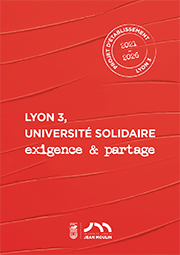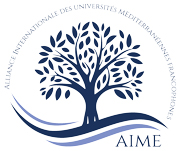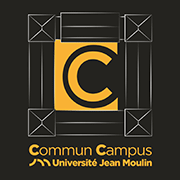AccueilRechercheProgrammes et productions scientifiquesThèsesThèses soutenuesThèses soutenues - 2006-2021Thèses soutenues - 2017
-
Partager cette page
- Recherche,
BEBADA Mègnon Didier
L’Onu et le défi politique de la mondialisation. Critique de la doctrine de la gouvernance globale et l’option des grands ensembles régionaux
Publié le 11 avril 2017 – Mis à jour le 13 décembre 2018
Thèse en Science politique, soutenue le 27 février 2017.
Face à la mondialisation qui a profondément transformé le milieu international, l’Organisation des Nations Unies, dont le projet est assez mondialiste sur le fond (paix durable pour toute l’humanité), est restée en réaction. Elle semble n’avoir pris conscience des enjeux de la globalisation économique qu’à la veille du XXIe siècle, en posant les lignes de sa refondation lors des Sommets (2000 et 2005) d’entrée dans le IIIe Millénaire. Malgré les initiatives, les avancés politiques de l’ONU restent peu significatives. A défaut d’une profonde réforme politique, s’est imposée l’idéologie de la ? Gouvernance globale ? et son mot d’ordre néo-libéral du ? moins de politique, moins d’Etat ?. Or le défi politique de la mondialisation se décline en fléchissement de la souveraineté des Etats, affaiblissement de la démocratie, brouillage des identités (citoyenneté), globalisation de l’insécurité, péril écologique etc. Face à ces défis, l’universalisme onusien et le multilatéralisme sont bien en panne ; le dépassement de l’Etat-nation parait aussi inévitable que l’avènement d’un Etat mondial est impossible. La perspective régionaliste semble donc plus pertinente pour aborder les menaces globales. Cette thèse défend l’hypothèse d’une reconfiguration du monde en un système oligopolaire de grands ensembles régionaux dirigés par des institutions communautaires (UE, UA). C’est une logique de ? grands espaces ?, inspirée des grands projets amphictyoniques historiques (Projets de paix perpétuelle), et qui postule de nouvelles communautés régionales de sécurité, articulées par une ONU refondée. Cette refondation est pensée autour du droit international adossé à une nouvelle éthique globale. L’avenir des Nations Unies et du système international passe moins par la ? global governance ? inspirée du marché, que par la construction de grands p?les régionaux politiques en articulation avec l’intégration économique.
In the face of the globalization that has profoundly changed the international environment, the United Nations, whose project is fairly globalist on the substance (lasting peace for all mankind), has remained in reaction. It seems to have become aware of the stakes of economic globalization only on the eve of the twenty-first century, setting the lines of its refoundation at the Summits (2000 and 2005) of entry into the Third Millennium. Despite the initiatives, the political progress of the UN remains insignificant. In the absence of a deep political reform, ideology of "Global Governance" and its neo-liberal slogan of "less politics, less state" imposed itself. But the political challenge of globalization is declining in sovereignty of states, weakening of democracy, blurring of identities (citizenship), globalization of insecurity, ecological peril, etc. Faced with these challenges, UN universalism and multilateralism are failing; the overcoming of the nation-state seems as inevitable as the advent of a world state is impossible. The regional perspective thus seems more relevant to address global threats. This thesis defends the hypothesis of a reconfiguration of the world into an oligopolar system of large regional ensembles led by community institutions (EU, AU). It is a logic of "great spaces", inspired by major historical amphictyonic projects (Perpetual Peace Projects), and postulates new regional security communities, articulated by a refounded UN. This refoundation is thought around international law backed by a new global ethic. The future of the United Nations and the international system is less influenced by "global governance" inspired by the market than by the construction of major regional poles in coordination with economic integration.
Mots-clés :
ONU ; Universalisme politique ; Mondialisation ; Système-monde ; Cosmopolitisme ; Gouvernance globale ; Projets amphictyoniques ; Oligopolaire ; Etat mondial ; Sécurité collective ; Intégration régionale ; Droit universel (mondial) ; Ethique globale ; Communautés de sécurité ; Néo-institutionnalisme.
Keywords :
UN; Political universalism; Globalization; World-System Cosmopolitism; Global governance; Amphictyonic projects; Oligopolar; World State; Collective security; Regional integration; Universal law (global); Global ethics; Security communities; Neo-institutionalism.
Directeur.trice de thèse : M. Jean-Paul JOUBERT
In the face of the globalization that has profoundly changed the international environment, the United Nations, whose project is fairly globalist on the substance (lasting peace for all mankind), has remained in reaction. It seems to have become aware of the stakes of economic globalization only on the eve of the twenty-first century, setting the lines of its refoundation at the Summits (2000 and 2005) of entry into the Third Millennium. Despite the initiatives, the political progress of the UN remains insignificant. In the absence of a deep political reform, ideology of "Global Governance" and its neo-liberal slogan of "less politics, less state" imposed itself. But the political challenge of globalization is declining in sovereignty of states, weakening of democracy, blurring of identities (citizenship), globalization of insecurity, ecological peril, etc. Faced with these challenges, UN universalism and multilateralism are failing; the overcoming of the nation-state seems as inevitable as the advent of a world state is impossible. The regional perspective thus seems more relevant to address global threats. This thesis defends the hypothesis of a reconfiguration of the world into an oligopolar system of large regional ensembles led by community institutions (EU, AU). It is a logic of "great spaces", inspired by major historical amphictyonic projects (Perpetual Peace Projects), and postulates new regional security communities, articulated by a refounded UN. This refoundation is thought around international law backed by a new global ethic. The future of the United Nations and the international system is less influenced by "global governance" inspired by the market than by the construction of major regional poles in coordination with economic integration.
Mots-clés :
ONU ; Universalisme politique ; Mondialisation ; Système-monde ; Cosmopolitisme ; Gouvernance globale ; Projets amphictyoniques ; Oligopolaire ; Etat mondial ; Sécurité collective ; Intégration régionale ; Droit universel (mondial) ; Ethique globale ; Communautés de sécurité ; Néo-institutionnalisme.
Keywords :
UN; Political universalism; Globalization; World-System Cosmopolitism; Global governance; Amphictyonic projects; Oligopolar; World State; Collective security; Regional integration; Universal law (global); Global ethics; Security communities; Neo-institutionalism.
Directeur.trice de thèse : M. Jean-Paul JOUBERT
Membres du jury :
M. Daniel HOLLY, Rapporteur, Professeur régulier, Université du Québec à Montréal (CANADA),
M. Pierre DE SENARCLENS, Professeur honoraire, Université de Lausanne (SUISSE),
Mme Mireille COUSTON, Professeure des universités, Université Jean Moulin Lyon 3,
M. Nicaise M?D?, Rapporteur, Professeur agrégé de droit, Université d’Abomey-Calavi (B?NIN),
M. Jean-Paul JOUBERT, Professeur des universités émérite, Université Jean Moulin Lyon 3.
M. Pierre DE SENARCLENS, Professeur honoraire, Université de Lausanne (SUISSE),
Mme Mireille COUSTON, Professeure des universités, Université Jean Moulin Lyon 3,
M. Nicaise M?D?, Rapporteur, Professeur agrégé de droit, Université d’Abomey-Calavi (B?NIN),
M. Jean-Paul JOUBERT, Professeur des universités émérite, Université Jean Moulin Lyon 3.
Président.e du jury : Mme Mireille COUSTON
Equipe d'accueil : Francophonie
Equipe d'accueil : Francophonie
Décision : Admis
Documentation
Mise à jour : 13 décembre 2018







